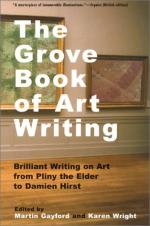|
This section contains 7,862 words (approx. 27 pages at 300 words per page) |

|
SOURCE: Andrew Wallace-Hadrill, "Pliny the Elder and Man's Unnatural History," in Greece and Rome, Vol. XXXVII, No. 1, April, 1990, pp. 80-96.
In the essay that follows, Wallace-Hadrill defends Pliny against his detractors by arguing that his words must be read within the context of Roman civilization and that his writings offer valuable insight into the role of science and social status in imperial Rome.
Not everybody shares my enthusiasm for the elder Pliny. We all have a nodding acquaintance with the Natural History, but few wish to pursue the relationship to the level of intimacy. Critics who care for the purity of Latin prose take a particularly dim view of him. Eduard Norden's verdict in Die antike Kunstprosa (i. 314) is much cited: 'His work belongs, from the stylistic point of view, to the very worst which we have.' This negative judgement was firmly endorsed by Frank Goodyear in...
|
This section contains 7,862 words (approx. 27 pages at 300 words per page) |

|


